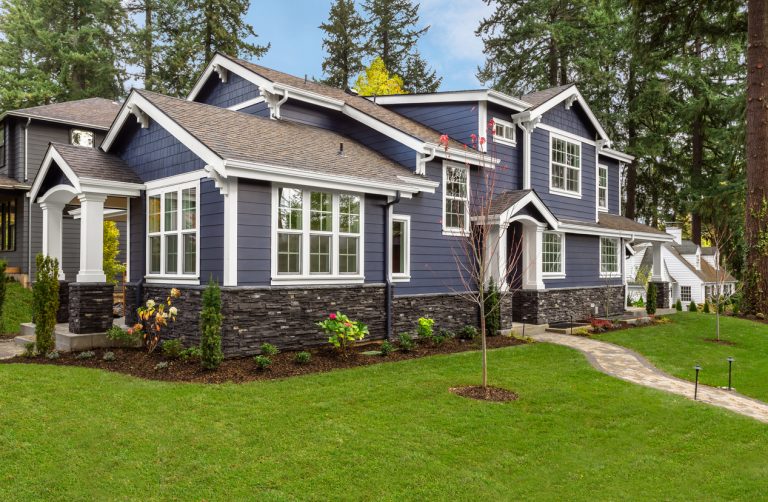Selling a Home vs. Renting it Out: The Case for Both
Selling a Home vs. Renting it Out: The Case for Both
Moving to a new home doesn’t always mean selling the old one. Homeowners could choose to keep it as a rental property. How to decide between selling a home vs. renting it out will be different for everyone. It boils down to three main topics: the homeowner’s goals, their financial situation, and whether or not they are “cut out” to be a landlord.
Aside from people who purchase a second home with the intention of renting it out, there are circumstances where a homeowner may find themselves with the possibility of an “extra” house. When the house has a lot going for it, they may consider keeping it instead of selling. This might seem like a good option for:
- a young, growing family moving to a bigger home
- a retired couple deciding to downsize when the kids are grown
- two homeowners who combine households
- someone who inherits a house
- people who must relocate, but plan to return and live in the house again (for example upon retirement or the completion of a military deployment or long-term work assignment)
Defining Goals to Decide Between Selling a Home and Renting It Out
To get to the answer of whether a homeowner should sell a home or rent it out, they must be clear about their motives. If, as in our last example in the list above, the homeowner decides to move but intends to return someday, renting the house out is a way to keep it until that time.
In the case of a couple who combine households and each owns a home, the “extra” home they choose not to live in presents a chance to enter the rental real estate market. Some may see renting out a home as a good opportunity to make some extra money. The same goes for a homeowner who inherits a home from a deceased parent. These houses could provide additional income if they are up for the challenge of being a landlord.
Another time when a homeowner may think about renting out a house is when they haven’t had any luck trying to sell it. Perhaps the market simply isn’t favorable and homes in the area are not selling easily, or something about their particular house makes it hard to sell. Either way, a homeowner may decide to rent the house out until the market improves.
If a house is hard to sell because it needs significant work done, the owner may decide to rent it out (provided it is safe and up to code or course) until they save up to make the upgrades. Renters are usually not as picky as buyers, who often expect things to be move-in ready. For example, a renter might not care that the kitchen is outdated and doesn’t have all the latest bells and whistles, as long as it’s functional and the rent is affordable. Meanwhile, the rent collected can take care of the mortgage and other expenses and the nicer kitchen can come when the budget allows.
Affording Two Houses
Two houses in the St. Louis Gate District. Photo by Paul Sabelman via Flickr. Used under attribution 2.0 Generic license.
Whatever the reasons for wanting to rent out a home vs. selling it, not everyone can afford it. Keeping a second house only works when the proceeds of its sale aren’t needed as a downpayment for the next house. And yes, tenants will pay rent, but there are significant expenses too. Add this to the costs of owning a primary residence, and it just isn’t possible for a lot of people.
But renting a home can be a lucrative endeavor. When a landlord manages to keep the property occupied, and finds good tenants who take care of the home and pay their rent on time, they can make money. Prospective landlords need to see what comparable properties in the area are renting for and calculate their expected costs. This can determine whether they should sell it or rent it.
These costs associated with rental properties should be considered when deciding between selling a home vs. renting it out:
Mortgage. Perhaps a homeowner inherits his or her parents’ house that was paid off long ago, but more often, the second home will still have a mortgage. Renting out the home makes the owner responsible for the principal and interest on two home loans. Consider also that missing or late payments could have a significant impact on the homeowner’s credit rating.
Insurance. Like any home, the property needs to be insured. For a rental property, a landlord policy is also a must. It protects the owner in regards to the property itself (for example fire or other damage) as well as liability coverage for medical expenses or legal fees if a tenant is hurt.
Repairs and Maintenance. A rental property owner is responsible for routine upkeep on the home as well as fixing things that break. It’s customary to clean carpets and paint every time there is a change in tenants. And renters may complain about things that an owner may live with, like a loose doorknob or window that won’t open. There could also be costly repairs if an owner decides to sell the property instead. The cost of those one-time fixes before putting a house on the market should be weighed with the ongoing needs of a tenant when choosing between selling and renting.
Management Fees. Owning a rental property is a business, and there are expenses associated with managing that business. Advertising the property, credit screening and doing background checks on prospective tenants, legal fees for drawing up leases, and accounting services, can all add up. Property management companies can take care of these tasks at an additional cost, usually about 10% of rental income.
Taxes. Property taxes for both a primary and rental residence should be considered. In addition, landlords are taxed on the income from rental properties just like on any other income. They can, however, write off their expenses and depreciation. When selling a home, the seller is allowed up to $250,000 in capital gains for their primary residence ($500,000 for a married couple filing jointly.) For a secondary home, they are on the hook for capital gains unless they lived in the house for at least two of the previous five years. This becomes important if a homeowner chooses to rent a home for a while and sell it later. If the timing is wrong, it could cost a lot in taxes.
The Landlord Life
The most important question a homeowner must answer when debating selling a home vs. renting it out is whether they want to be a landlord. Some people would not do it no matter how much money they could make. It is definitely not for everyone and often the deciding factor.
The Case for Renting Out a Home
According to a piece done by CNBC, the demand for single-family rental homes is surging to the point that some home builders are building properties specifically to rent. If a homeowner finds themself with the opportunity of another house, it could be a good investment.
- A nice, well-maintained house in a desirable location will be a moneymaker. When long-term, reliable tenants move in, there is the potential of making money with very little effort.
- Yes, there will be taxes to pay on the income, but expenses and depreciation will lower the tax liability.
- Renting is a way to hang onto a house for future use, whether for themselves, for an aging parent, or for a child when they reach adulthood.
- If market conditions aren’t great for sellers, it can buy a homeowner some time so they can get more from the sale when the market improves.
- Adding rental real estate to a portfolio can help an investor diversify.
- There is help available for landlords who can’t do everything themselves, or simply don’t want to. Property management companies like Select Leasing & Management offer a broad range of services and their fees are tax-deductible. A property management company can find and screen tenants, maintain the property, handle all of the administrative tasks, and evict tenants if necessary. Read this to learn how to find a good one.
The Case for Selling a Home
Even if a house could be a good rental property, there are times when it is best to sell it. Being responsible for not just one, but two properties can be stressful.
- Two mortgages, two property tax bills, two roofs to fix… If someone worries about money anyway, taking on double the expenses will not be pleasant.
- A bad tenant could damage the house or not pay the rent. Even a good tenant could be calling with an emergency in the middle of the night.
- The expenses don’t stop if the house is vacant. Every day it sits empty will cost money.
- Landlords have to strike a balance: It must be well-maintained, but maintenance can’t break the bank. Tenants must be chosen carefully but discrimination laws must be followed. The price-point must be affordable and appropriate for the area but must turn a profit.
- While selling a second home will be subject to capital gains tax, if the money isn’t needed for a down payment on another house, the proceeds can be used for something else.
- Selling a home and choosing not to rent it out allows the homeowner to walk away with no further obligations.
Many of the same things that will help sell a house make it desirable as a rental too. Being a landlord can be a worthwhile pursuit if you have the time, patience, and financial means. But sometimes selling is the smart thing to do. The best thing someone can do when faced with selling a home vs. renting it out is to honestly examine their goals, financial fitness, and personality.
If you have questions about selling a home or owning rental real estate, contact us at Berkshire Hathaway HomeServices Select Properties. We’re happy to help you decide.
Share This Post
| Previous Post | Next Post |




